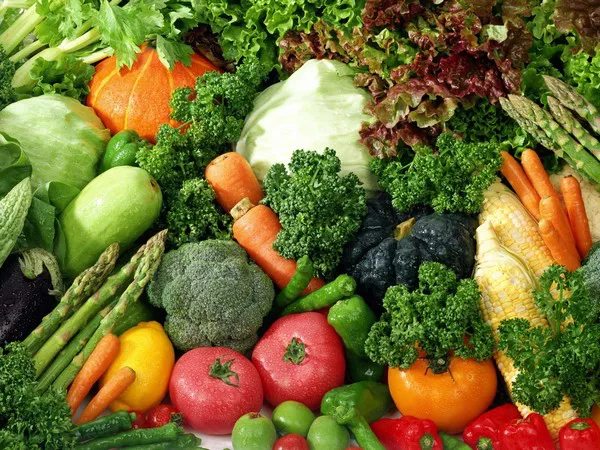Beautiful, healthy hair is often seen as a symbol of vitality and well-being. However, maintaining strong and lustrous locks can be challenging, especially in the face of various external factors and lifestyle choices that can affect hair health. One way to support your hair’s well-being is by ensuring you get the right vitamins and minerals in your diet. In this comprehensive guide, we will explore the essential vitamins and minerals that play a crucial role in promoting healthy hair, and how you can incorporate them into your daily routine to achieve the gorgeous, vibrant hair you desire.
Understanding Hair Health
Before diving into the specific vitamins and minerals that benefit your hair, let’s first understand the fundamentals of hair health.
Hair Structure: Each hair strand is composed of a protein called keratin. The health and strength of your hair depend on the quality of keratin.
Hair Growth Cycle: Hair goes through a continuous growth cycle, which includes the anagen (growth), catagen (transitional), and telogen (resting) phases. Nutritional deficiencies and external factors can disrupt this cycle.
Factors Affecting Hair Health: Hair health is influenced by genetics, age, hormonal changes, stress, diet, and exposure to environmental factors such as pollution and UV radiation.
Common Hair Issues: Hair problems like hair loss, thinning, dullness, and breakage can result from inadequate nutrition, stress, and other factors.
Vitamins for Healthy Hair
Several vitamins are essential for maintaining strong, healthy hair. Incorporating these vitamins into your diet can help improve hair quality and promote growth. Here are the key vitamins for healthy hair:
1. Vitamin A
Benefits: Vitamin A supports the production of sebum, a natural oil that moisturizes the scalp and keeps hair healthy. It also plays a role in promoting hair growth.
Food Sources: Sweet potatoes, carrots, spinach, and mangoes.
2. Vitamin C
Benefits: Vitamin C is an antioxidant that helps protect hair from oxidative stress. It also supports collagen production, which is essential for hair structure.
Food Sources: Citrus fruits (oranges, lemons), strawberries, bell peppers, and broccoli.
3. Vitamin E
Benefits: Vitamin E is another antioxidant that can help prevent oxidative damage to hair follicles. It also supports a healthy scalp.
Food Sources: Nuts (almonds, hazelnuts), seeds (sunflower seeds), spinach, and avocados.
4. Biotin (Vitamin B7)
Benefits: Biotin is often associated with hair and nail health. It plays a vital role in the production of keratin, the protein that makes up hair.
Food Sources: Eggs, nuts, salmon, and sweet potatoes.
5. Vitamin D
Benefits: Vitamin D is crucial for hair follicle cycling and hair growth. It also helps maintain the health of hair follicles.
Food Sources: Fatty fish (salmon, mackerel), fortified dairy products, and sunlight exposure.
6. Vitamin B3 (Niacin)
Benefits: Niacin promotes blood circulation to the scalp, which can help deliver essential nutrients to hair follicles.
Food Sources: Chicken, turkey, peanuts, and mushrooms.
Minerals for Healthy Hair
Minerals are equally important for hair health as vitamins. They play various roles in maintaining hair structure, growth, and overall health. Here are the essential minerals for healthy hair:
1. Iron
Benefits: Iron is essential for carrying oxygen to hair follicles. Iron deficiency can lead to hair loss and thinning.
Food Sources: Red meat, poultry, fish, lentils, and spinach.
2. Zinc
Benefits: Zinc is necessary for maintaining the health of hair follicles and promoting hair growth.
Food Sources: Oysters, beef, pumpkin seeds, and lentils.
3. Selenium
Benefits: Selenium is an antioxidant that helps protect hair from damage. It also plays a role in hair growth.
Food Sources: Brazil nuts, sunflower seeds, fish, and turkey.
4. Copper
Benefits: Copper is involved in the production of melanin, the pigment that gives color to hair.
Food Sources: Organ meats (liver), nuts, seeds, and whole grains.
5. Silica
Benefits: Silica helps strengthen hair and prevent hair thinning. It’s essential for maintaining hair elasticity.
Food Sources: Whole grains, oats, and rice.
Supplements for Hair Health
While it’s ideal to obtain essential vitamins and minerals from a balanced diet, some people may benefit from supplements, especially if they have nutritional deficiencies or specific dietary restrictions. However, it’s crucial to consult with a healthcare provider before starting any supplements, as excessive intake can have adverse effects.
Common supplements for hair health include:
Multivitamins: These often contain a range of vitamins and minerals, including those essential for hair health.
Biotin Supplements: Biotin supplements are readily available and can help support hair and nail health.
Iron Supplements: Iron supplements may be recommended for individuals with iron-deficiency anemia and associated hair loss.
Lifestyle Factors for Healthy Hair
In addition to a well-balanced diet and supplements if necessary, consider these lifestyle factors to maintain healthy hair:
Stress Management: Chronic stress can contribute to hair problems. Practice stress-reduction techniques such as meditation, yoga, or deep breathing exercises.
Hair Care: Use gentle hair care products and avoid excessive heat styling, which can damage hair.
Scalp Care: Maintain a clean and healthy scalp by using a mild shampoo and avoiding excessive scratching or scrubbing.
Avoid Overprocessing: Minimize the use of harsh chemical treatments and hair dyes, which can weaken hair.
Regular Trims: Get regular haircuts to remove split ends and prevent breakage.
Conclusion
Achieving and maintaining healthy, vibrant hair requires a combination of proper nutrition, supplements if necessary, and a healthy lifestyle. By incorporating essential vitamins and minerals into your diet and taking steps to care for your hair, you can promote hair growth, prevent hair loss, and enjoy the confidence that comes with beautiful, healthy locks. Remember that individual responses to nutrition and supplements vary, so it’s essential to consult with a healthcare provider for personalized guidance on supporting your unique hair health needs.


